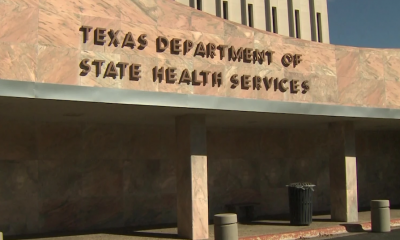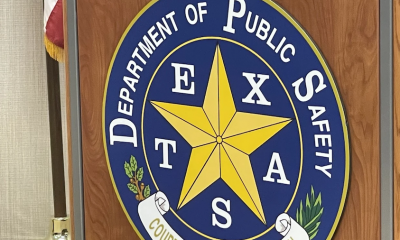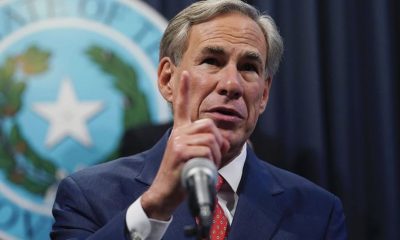COVID-19
Emergency Tents Arrive in Plano As COVID-19 Cases Continue to Surge in Texas

PLANO, TX – A photo posted over the weekend on social media of the inside halls of Texas Health Presbyterian Hospital in Plano paints a picture of the times.
Eight tents lit in a green glow line the lower lobby of the healthcare center. A folding chair is posted at each entry. The edge of a blue gurney can be seen from one of the makeshift patient treatment areas.
The hospital set up tents in its lobby, not for COVID-19 patients but to help expand capacity for emergency care for non-COVID patients, Stephen O’Brien, a spokesperson for Texas Health, stated in an email.
“Due to the significant surge of COVID-19 cases following the holiday season, Texas Health Presbyterian Hospital Plano moved quickly to stand up a simple but very effective solution to add extra emergency room capacity for non-COVID patients to be triaged, assessed, tested and treated,” he wrote.
The lobby space is easily accessible from the Emergency Department and the tents offer privacy for patients. The pop-up ED for non-COVID patients is staying full, hospital President Josh Floren said.
“We can treat eight patients at a time in the tents which expands the number of patients we can see given the increased demand,” Floren said.
Medical professionals stocked the white tents lining the lobby with supplies. They are able to assess and test patients and often send them home with medications and instructions for follow-up care.
Floren said that they will use the tents during peak times, typically between 11 a.m. – 11 p.m. On Jan. 7, the first day of operation, they treated 15 patients in the lobby overflow area over a 4-hour period.
The tents are just one way hospitals are responding to consistently increasing COVID-19 cases.
Elective surgeries delayed
Just before the weekend, Medical City Healthcare announced that it is postponing elective inpatient surgeries and procedures until Feb. 1 at its dozens of hospitals and surgery centers across the Metroplex. Included among those are hospitals and surgery centers in the Collin County cities of Frisco, Plano and McKinney.
The move is to “further expand capacity and staff while reserving supplies and resources for patient care,” according to a statement on the Medical City Healthcare website.
Essential and emergency procedures and surgeries will continue uninterrupted, officials at both healthcare agencies emphasized.
“It’s important that people go to the ER or call 911 if they’re having what they think is an emergency,” O’Brien said.
Many hospitals across the Dallas-Fort Worth area are full or almost at capacity. As of Friday, 4,098 COVID-19 patients are using 26.2 percent of hospital beds in North Texas. Texas Department of State Health Services reports that only 82 available adult staffed ICU beds are available in North Texas. COVID-19 adult ICU patients are 49% of all adult ICU patients.
Officials anticipate another surge in coming weeks, associated with Christmas and New Year holiday gatherings.
So far, the state has added 977 new coronavirus cases and 11 new COVID-19 deaths to Collin County’s totals Saturday. There were more than 170 new cases Sunday in Plano alone, according to data posted on the city’s website.
The plan
Also on Sunday, DSHS announced a new plan to provide more people the vaccine and a simpler way to sign up for an appointment.
This week, Texas will direct most COVID‑19 vaccines to large sites or hubs around the state. They plan to vaccinate more than 100,000 people, according to the statement. All Phase 1A (front-line healthcare workers and residents at long-term care facilities) and Phase 1B individuals (people over 65 or with a chronic medical condition that puts them at increased risk for severe illness from COVID‑19) are eligible to receive a vaccine at these hubs, regardless of where they reside.
Earlier this month, Collin County launched a vaccine wait list for people in those two categories.
While medical professionals are offering the vaccine to specific groups, it will take months before its effectiveness will be seen. Until the vaccine is available for everyone, officials continue to recommend wearing a mask, washing hands frequently, and socially distancing.










